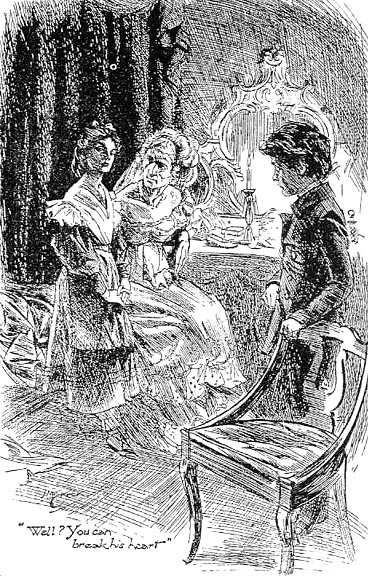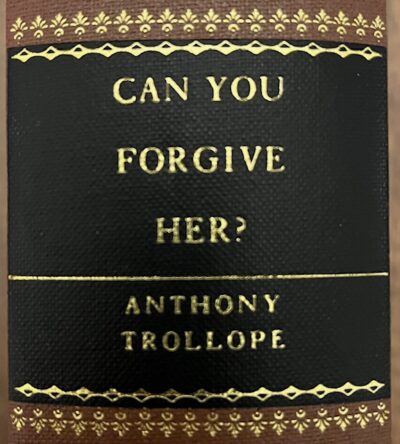The Machine Stops, by E M Forster, is a brilliant analysis of how humankind is going wrong right now. Forster wrote it in 1909.
Here are three quotations from The Machine Stops:
- Few travelled in these days, for, thanks to the advance of science, the earth was exactly alike all over.
- “Beware of first-hand ideas!… First-hand ideas do not really exist. They are but the physical impressions produced by love and fear, and on this gross foundation who could erect a philosophy? Let your ideas be second-hand, and if possible tenth-hand, for then they will be far removed from that disturbing element — direct observation.
- “In time… there will come a generation that had got beyond facts, beyond impressions, a generation absolutely colourless, a generation ‘seraphically free from taint of personality.’”
What if someone wrote “a jaw-droppingly, gob-smackingly, breath-takingly accurate literary description of lockdown life” under COVID in 2021? What if they wrote it in 1909?
Welcome to The Machine Stops.
The Machine Stops: a two-fold allegory
A brilliant English teacher of mine at school in Manchester first brought my attention to this extraordinary story in 1973. We read it aloud in class and he invited us to guess when it was written. No-one came near.
The only clue is that the characters travel across the world not by aircraft (the Wright Brothers had carried out the first powered flight at Kitty Hawk only in 1903) but by airship.
The image of humans living alone in underground cells, sustained by a fickle and delicate machine, and a mother communicating grudgingly by video with her distant son, left an indelible impression on me. So, too, the climax (the clue is in the title). The Machine Stops is a fine allegory of the precarious nature of civilisation.
But a 2020 review by the BBC’s excellent Will Gompertz highlighted an even more chilling aspect of The Machine Stops. The inhabitants of this future world, Gompertz points out, spend all their time lapping up abstract historical information that has absolutely no relevance to their actual subterranean lives beyond being an illusory distraction from their hollowed-out existence.
Sound familiar? Surely this is what we are all doing all day on Facebook, Instagram, Twitter & Co?
Similarly, a fine 2019 article in The New Yorker cites the protagonist of The Machine Stops, Kuno, saying to his mother, Vashti, who has not seen him or any other human being, for years: “I want to see you not through the Machine… I want to speak to you not through the wearisome Machine.” Kuno goes on: “We have lost a part of ourselves… Cannot you see… that it is we that are dying, and that down here the only thing that really lives is the Machine?”
Vashti has thousands of “friends,” connected by The Machine. But she never meets any of them.
The Machine Stops: why we need to slow down
The way Vashti chides Kuno for taking his time doing things (“Kuno, how slow you are”) is reminiscent of my recent post Living your best life – can you reimagine your relationship with time? Vashti thinks she is fantastically busy. She is proud of herself for allocating a full five minutes to a video conversation with her son. In fact she has literally nothing to do. Even crossing her room, or picking up something she has dropped, is automated for her. By comparison, we hear that Vashti is seized with the terrors of direct experience.
When Vashti meets her son Kuno, she avoids touching or looking at him. “I have had the most terrible journey,” she says, “and greatly retarded the development of my soul. It is not worth it, Kuno, it is not worth it. My time is too precious.”
Kuno, in turn, criticises The Machine in terms remarkably familiar in the present age of the internet and the growing decision-making power of AI: “We created the Machine, to do our will, but we cannot make it do our will now. It has robbed us of the sense of space and of the sense of touch, it has blurred every human relation and narrowed down love to a carnal act, it has paralysed our bodies and our wills, and now it compels us to worship it. The Machine develops — but not on our lines. The Machine proceeds — but not to our goal.“
The challenges we face giving meaning to our life are not new. Historical context can help us overcome them.
The Machine Stops: further reading
“The Machine Stops” reminds me of two other sci-fi classics with existential themes:
- Vintage Season by Lawrence O’Donnell (read my blog post, and the story, at the link). What if history judged the terrible time we live in now to have been the best of all possible times?
- Alders Huxley’s Brave New World (Wikipedia article at the link). The book envisages a dystopia focused on maintaining stability at all costs. It includes Soma – a drug to keep people calm by giving them a fake sense of fulfilment. Try making a list of substances or activities that perform the same function in today’s world.
Don’t be depressed
In case all these dystopias get you down, explore the following cheery blog-posts:
- Tuchman’s Law (or “Always look on the bright side?”): 9/10 – how the brilliant historian Barbara Tuchman invented a playful “law” to put whatever you think is wrong with the world in context;
- Things are getting better. Not worse – why the media are programmed to report more bad news than good, for sound commercial reasons. So the news may seem bad, but the actual world is better;
- DON’T PANIC: a communications masterclass 10/10 – the views of the late great Hans Rosling, master statistician, on why the world is better than we think.
P.S. If you enjoy fresh, original writing, please check out my own dystopian speculative thriller, Eternal Life.
What if crime did pay, handsomely?








